Each year, Americans observe National Hispanic Heritage Month from September 15 to October 15, by celebrating the histories, cultures and contributions of American citizens whose ancestors came from Spain, Mexico, the Caribbean and Central and South America. The observation started in 1968 as Hispanic Heritage Week under President Johnson and was expanded by President Reagan in 1988 to last a month.
September 15 is significant because it is the anniversary of independence for Costa Rica, El Salvador, Guatemala, Honduras and Nicaragua. In addition, Mexico and Chile celebrate their independence days on September 16 and September 18, respectively. More than 65 million people identify as ethnically Hispanic in the U.S., according to the latest census estimates.
In honor of this cultural celebration, here are 10 books by Hispanic/Latina writers that I highly recommend.
The Cemetery of Untold Stories — Julia Alvarez (2024)
The Cemetery of Untold Stories is the tale of a successful Dominican American writer nearing the end of her career who wants to avoid the fate of a writer friend who became obsessed with finishing her novel, to her detriment. When Alma Cruz inherits a small piece of land in Santo Domingo, she decides to turn it into a cemetery for her unfinished work, believing the ritual burial of her boxes of manuscripts will placate the story gods and calm her own soul. But the stories refuse to rest in peace. The protagonists begin to speak to Filomena, the caretaker, telling her their stories. The narrative alternates between the present and the past as Bienvenida Trujillo, the wife of the Dominican Republic’s former dictator, Rafael Trujillo, and Dr. Manuel Cruz, a dissident who fled to the United States, tell their complicated and riveting life stories. We learn about the immigrant experience, the sacrifices made for love and family, and why certain stories are never told but should be. I loved watching Alma settle into a quiet life in her working-class neighborhood, her touchy relationship with her sisters, the way Filomena blossoms under the influence of Alma, and the depiction of the various lives Dominican immigrants and their children ended up living in the U.S.
The Bullet Swallower — Elizabeth Gonzalez James (2024)
Antonio Sonoro is a bandit who’s running low on luck and money, and the tiny town in Mexico where he lives with his wife and children has run dry after a long drought. So when he hears about a train carrying gold, he thinks his problems are solved. But their trouble is just beginning. Sixty-nine years later, his grandson Jaime is Mexico’s most famous actor and singer. Unfortunately, his ancestor’s bad luck is about to visit him as well – unless he can find out the truth behind the violent criminal life of Antonio, the legendary El Tragabalas, The Bullet Swallower. I really enjoyed the section where Antonio and a sidekick he ends up saddled with try to outrun the Texas Rangers. It’s gritty and violent with a palpable sense of place, sort of like a more accessible Cormac McCarthy. This debut novel is a family drama, an adventure, and a mystery that takes on racism, Tex-Mex border politics, and the trauma that is passed from one generation to the next.
On a Night of a Thousand Stars – Andrea Yaryura Clark (2022)
Most Americans are unfamiliar with Argentina’s notorious Dirty War of the mid-1970s, in which the military regime attempted to crush dissent by “disappearing” dissidents and other opponents. In her debut novel, Clark tells the story of Argentine diplomat Santiago Larrea and his family. When he’s named Ambassador to the UN, his daughter Paloma begins to investigate his life in the years leading up to the start of the Dirty War in 1976. What she learns forces her to reconsider her own life. [For nonfiction about this dark chapter in Argentina’s history, read Prisoner Without a Name, Cell Without a Number by influential newspaper publisher Jacobo Timerman and My Name is Victoria: The Extraordinary Story of One Woman’s Struggle to Reclaim Her True Identity (Other Press) by Victoria Donda.]
Family Lore — Elizabeth Acevedo (2023)
Family Lore is the story of a four sisters and two of their daughters that is set in motion when Flor, who has a gift for premonitions of someone’s impending death, announces that she wants to have a “living wake” while she’s still alive. Naturally this turns her family upside down with concern and confusion. Acevedo gives each of the main characters their own narrative. We’re taken back through their moves from the Dominican countryside to Santo Domingo and then on to New York City, as well as various family and romantic relationships, creating a vivid portrait of the family’s struggles and joys. Flor, Pastora, Matilde, and Camila are quirky and believable, and the language is what you’d expect from a poet-turned-novelist. The prose is sensual and a pleasure to read aloud. I’m guessing the audiobook might be a great way to enjoy this book. Family Lore is an absorbing examination of one Dominican-American family that, despite the occasionally confusing structure, bodes well for future adult-oriented novels from Acevedo.
The Five Wounds – Kirstin Valdez Quade (2021)
The Five Wounds follows the Padilla family of Las Penas, New Mexico over the course of a year. Amadeo is a feckless 33-year-old living with his mother Yolanda; he’s unemployed and spends his days watching TV and drinking beer. It’s Holy Week and Amadeo has been given the role of Jesus in the Good Friday procession performed by the local Catholic men’s group. It’s the leader’s hope that this will put Amadeo on the right path after many years of self-destructive living. To everyone’s surprise, he is fervently committed to this chance at a rebirth and is preparing in the best method acting style. But then his estranged 15-year-old daughter Angel shows up at Yolanda’s house, pregnant. She hopes Yolanda, the family’s heart and soul, will take her in and help her with the baby. And maybe she’ll be able to develop a relationship with her father, who has maintained a hands-off approach to parenthood. Valdez Quade has a gift for bringing these flawed but very human characters to life. They misunderstand each other, nurse grudges, marinate in their low self-esteem, and seem to have little to no luck. But Angel’s presence is the catalyst for a series of events that manage, ever so tenuously, to pull things together.
Infinite Country — Patricia Engel (2021)
At just 200 pages, Infinite Country is a fast read, but that doesn’t lessen its power. Engel begins near the ending of the story. Fifteen-year-old Talia is in a correctional facility for adolescent girls in the mountains of Colombia following an act of violence. Engineering the escape of several girls and herself, she must find her way home to Bogota, where her father and a plane ticket to New Jersey await. Infinite Country depicts the events leading up to what is actually Talia’s return to America. It’s the story of a young couple, Mauro and Elena, who decide to abandon Bogota for the chance of a better life in the United States. When they decide to overstay their visa, they become undocumented immigrants. Before long, their family expands with the births of son Fernando and daughter Talia, making them a mixed status family of three undocumented Colombians and two American citizens. The catalyst for the novel’s core narrative is Mauro’s arrest and deportation. As a result, we see how each type of immigration and citizenship status affects the holder and their relationships with other family members. Engel weaves the stories of Talia, Mauro, and Elena into a tri-color cloth akin to the Colombian flag: Talia is the wide yellow band, while her parents are the blue and red bands.
The Loss of All Lost Things: Stories — Amina Gautier (2016)
In Gautier’s third collection, The Loss of All Lost Things, she moves beyond the concerns of her earlier work to the issue of loss in its many forms. Her characters have either suffered a loss, literally lost someone or something, or are at loose ends in figuring out what to do with their lives following a significant and often unexpected event. What so impresses me about these stories is Gautier’s ability to plumb the psyche of very complex characters with a psychological acuity that will break your heart repeatedly. Gautier also explores individuals searching for the solutions to the voids in their lives. The opening “Lost and Found” follows a young boy who has been abducted by a man identified only as “Thisman” as they move from motel to motel over a period of several months. The title story takes us into the home and life of the grieving parents of the boy from “Lost and Found.” “Cicero Waiting” is a variation on this theme of parents coping with the loss of a child. “Intersections” explores the seemingly cliched affair between a white college professor and a beautiful and brilliant black student with results that manage to sidestep those cliches. “A Cup of My Time” probes another marriage, this time that of young, expectant parents.The Loss of All Lost Things is a dark and often disturbing collection, but Gautier is such a gifted storyteller, the characters and conflicts so compelling, the telling details so perfectly chosen, that you can’t turn away. Amina Gautier is a fearless writer who I am willing to follow anywhere.
Olga Dies Dreaming – Xochitl Gonzalez (2022)
Olga Dies Dreaming is another impressive debut. Set in 2017, it follows Olga, a wedding planner for wealthy New Yorkers, and her brother, Pedro, a local politician, as they negotiate their complicated lives. Their mother, Blanca, abandoned them for radical politics, leaving them to be raised by their grandmother, but their personal ambition and success has allowed them to bury family secrets. When Hurricane Maria brings devastation to Puerto Rico, Blanca reenters the picture. This is a smart, funny, and crisply written examination of the American Dream and what it means to be caught between two cultures. Olga Dies Dreaming is also a much-needed primer on the history and current effects of American colonialism in Puerto Rico. I’m looking forward to Gonzalez’s next book.
A Ballad of Love and Glory – Reyna Grande (2022)
If you’re like most Americans, you probably don’t know much about the Mexican-American War. Grande’s first historical/romance is the story of Ximena Salome, a young curandera who joins the Mexican Army as a nurse when Texas Rangers murder her husband. She meets John Riley and other Irish mercenaries who have deserted the Union Army in Texas to join the Mexican Army and form the St. Patrick’s Battalion. While Ballad was a little more of a melodramatic romance than my usual reading, I enjoyed these characters and learned a lot about the war from the Mexican point of view.
Woman of Light – Kali Fajardo-Anstine (2022)
Fajardo-Anstine’s debut collection, Sabrina & Corina, which explored the lives of Latinas of Indigenous ancestry in New Mexico and Colorado, was a National Book Award finalist. Woman of Light, her first novel, follows Luz “Little Light” Lopez, a tea leaf reader, as she struggles to make it on her own in 1930s Denver. She begins to have visions of her Indigenous ancestors, which allows Fajardo-Anstine to explore their history in the Lost Territory of the Southwest. Woman of Light folds a necessary history lesson into a story of oppression, resistance, and adaptation. It seems destined to become a movie or series.





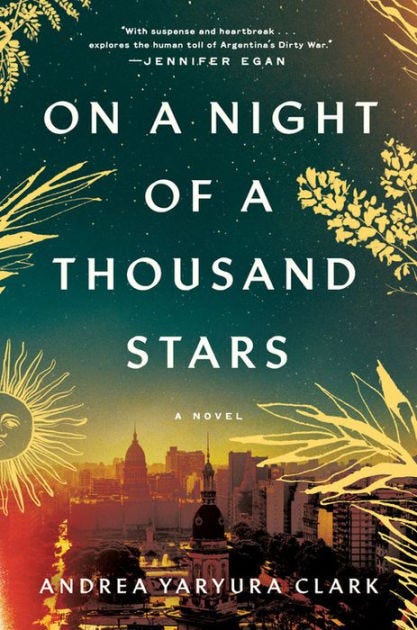
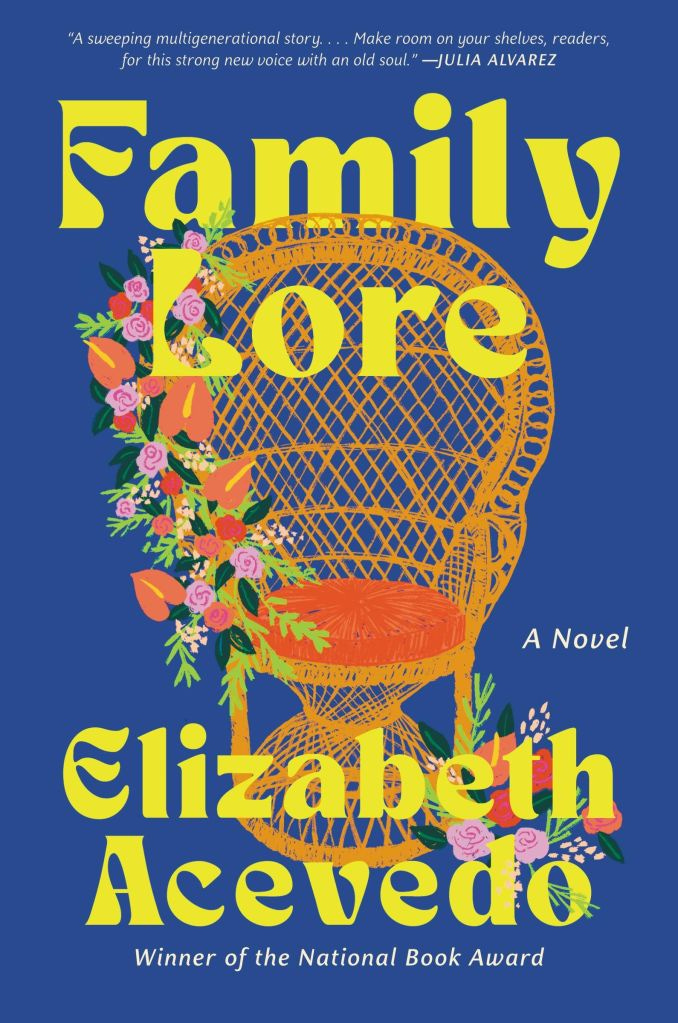
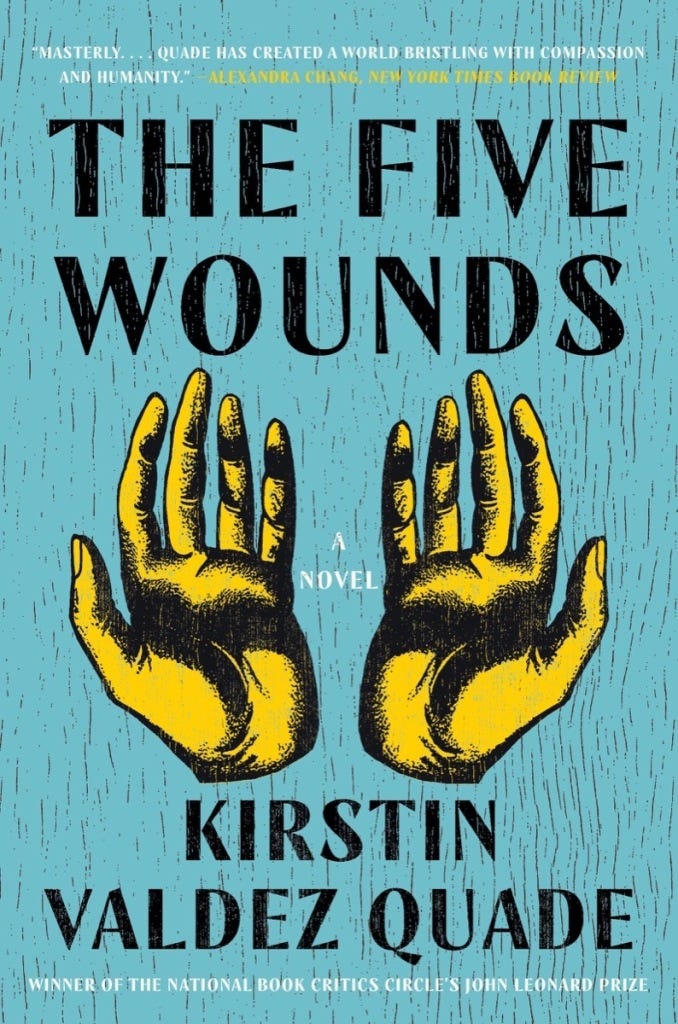

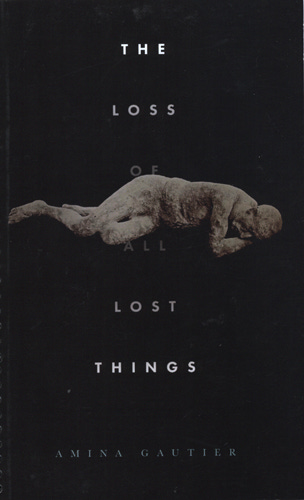
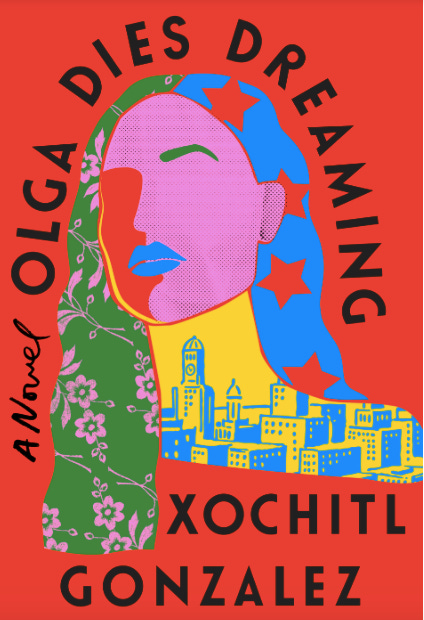
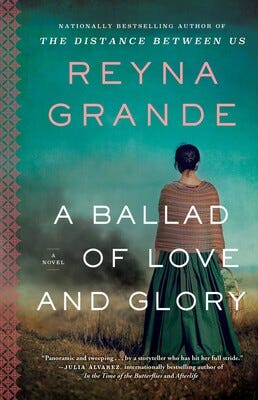

I've been curious about the Alvarez one, glad to see you enjoyed.